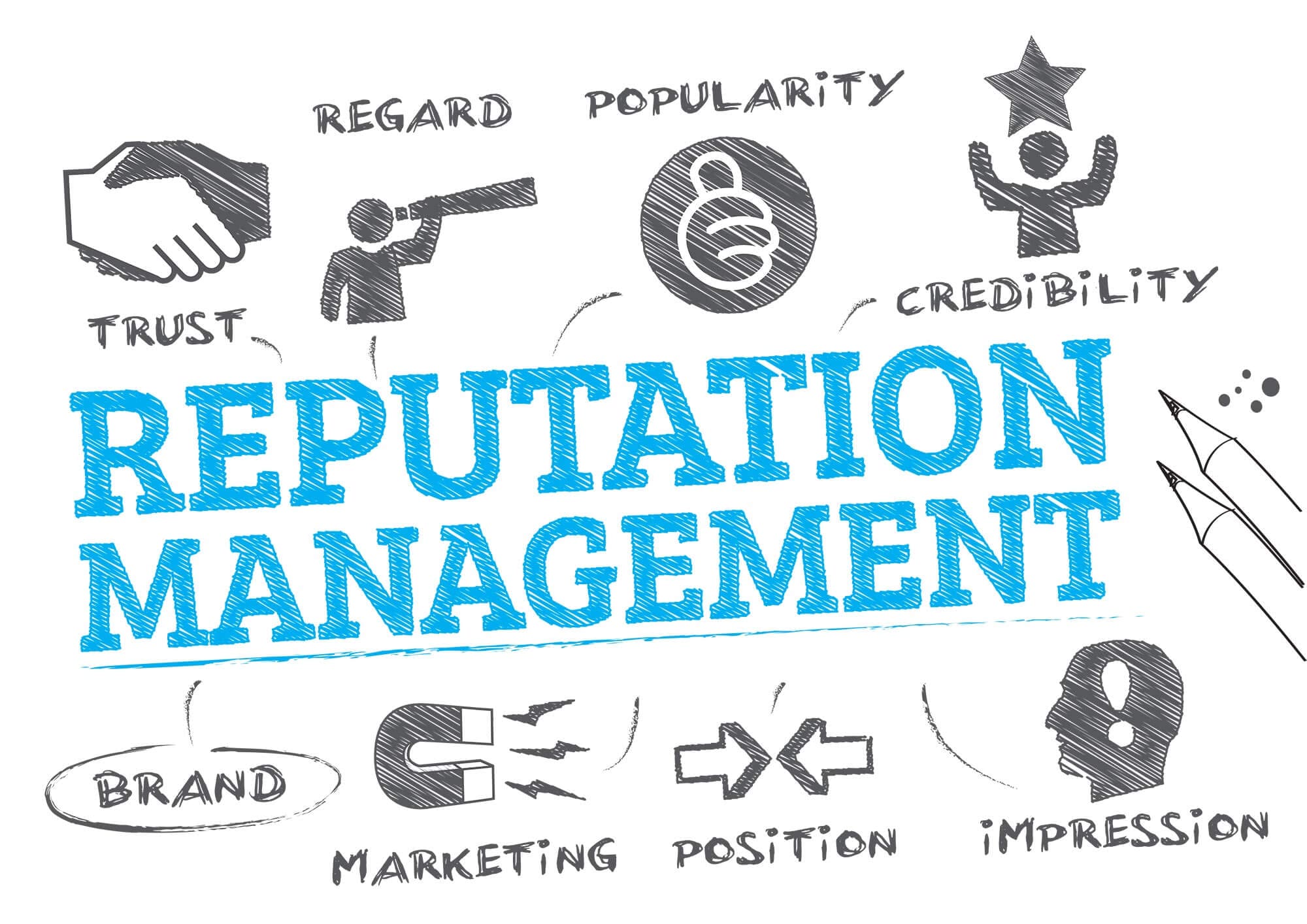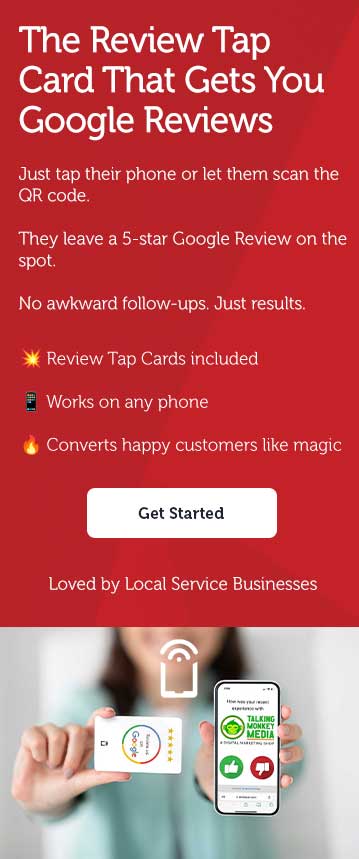Online Reputation Management: Putting the Best Digital Foot Forward
Online Reputation Management is about proactive action, not reactions to disasters
Maintaining a robust online image is crucial for any local business in today’s digital age. With the surge of online reviews, social media interactions, and user-generated content, a business’s online reputation can significantly influence customer decisions. Online reputation management (ORM) helps businesses put their best foot forward, allowing them to shape public perception and address positive and negative feedback.
A business reputation isn’t just about delivering quality services; it’s about ensuring potential customers view the business positively online. Effective ORM can minimize the impact of harmful content while boosting business impact through increased trust and consumer confidence.
What is Online Reputation Management?
Online reputation management (ORM) controls how a business or individual is perceived online. This is done by monitoring various channels like social media platforms, online review sites, and search engines. The goal is to cultivate a strong brand reputation aligning with business goals and consumer expectations.
For local businesses, ORM is crucial as it influences potential customers who rely on online reviews and other sources of truth to make decisions. Whether addressing negative commentary or promoting positive content, ORM provides a balanced strategy. Many businesses turn to online reputation management services or reputation management software to handle this process efficiently.
The Connection Between ORM and SEO
SEO (Search Engine Optimization) and ORM go hand in hand. A business’s search volume and visibility are directly impacted by how it’s perceived online. When businesses manage their online reputation well, it can lead to higher search rankings, thanks to positive reviews, brand-created content, and high-quality backlinks.
ORM focuses on dealing with harmful content, improving organic content, and leveraging SEO strategies in SEO reputation management can help businesses increase Google reviews and boost their rankings.. For local businesses, this can translate into higher rankings in search engines, helping them attract more customers through improved online reputations.
Key Components of Online Reputation Management
Effective online reputation management relies on critical components that work together to build and maintain a business’s online image. These components ensure that a company stays on top of public sentiment and proactively addresses any harmful content that might arise. For a local business, mastering these elements can significantly impact customer acquisition and retention.
Monitoring Online Sentiments
Monitoring online sentiments involves tracking how people perceive your business across various digital channels. This includes watching online reviews, social media posts, and mentions on third-party review sites. By staying aware of what customers say, businesses can quickly respond to negative comments and identify patterns that may affect their online reputation. Sentiment analysis tools help businesses assess their current reputation in real time, allowing for timely responses to negative and positive reviews.
Addressing Negative Feedback
Every business will inevitably receive a negative review at some point, but how you handle that feedback can define your brand’s reputation. Addressing negative feedback professionally and promptly demonstrates transparency and a commitment to customer satisfaction. Negative comments offer an opportunity to show potential customers how you manage issues, which can ultimately enhance customer trust. Developing strong communication guidelines for responding to such feedback is crucial in maintaining a solid brand reputation.
Promoting Positive Content
A key element of ORM is content promotion—highlighting positive stories, customer feedback, and relevant content about your business. By encouraging happy customers to leave online reviews and share their experiences through brand-created content, businesses can push harmful listings further down in search engine results. Consistently promoting organic content that reflects your business’s strengths helps maintain a favorable digital footprint and boosts consumer confidence.
How Online Reputation Management Works
ORM is a continuous process that requires a well-defined strategy to be effective. Businesses must proactively assess their current standing, set clear goals, and take steps to enhance their digital presence. Here’s how the process unfolds:
Assessing Current Reputation
The first step in ORM is thoroughly analyzing your business’s current reputation. This involves reviewing online reviews, social media comments, and digital assets linked to your brand. By understanding your online reputation’s current standing, you can identify core issues, such as a poor reputation from bad reviews or harmful listings, and create a plan to address them.
Developing a Reputation Management Strategy
Once the assessment is complete, businesses should develop an online reputation management strategy tailored to their needs. This strategy may involve improving customer feedback, building positive links, or addressing negative search results. It also requires setting clear goals for how you will monitor and improve your online presence over time. Sometimes, partnering with a reputation management company can help businesses craft a comprehensive ORM plan.
Engaging with Customers
Customer engagement is a cornerstone of effective ORM. This includes responding to customer reviews, interacting with followers on social media channels, and encouraging more online reviews from satisfied customers. By actively engaging with happy customers and those with concerns, businesses can foster positive experiences and demonstrate that they value customer opinions.
Managing Crisis Situations
No business is immune to crises, whether a wave of negative reviews or a viral social media post tarnishing your reputation. Effective ORM during crises includes knowing how to fix bad Google reviews or even how to report fake Google reviews. Managing a crisis means responding immediately to negative feedback and online attacks while remaining transparent. Whether addressing misinformation or tackling negative sentiment, businesses must stay calm and communicate clearly to prevent further damage.
A well-executed ORM strategy during a crisis can turn potential disasters into opportunities to reinforce trust. By showing professionalism and a willingness to resolve issues, businesses can maintain their strong brand reputation and minimize long-term damage.
Analyzing Results and Adjusting Strategies
The final step in an effective ORM process is continuous analysis and adjustment. Businesses should track their progress using analytics and reporting tools to understand how changes impact their online reputation. Monitoring social posts, customer sentiment, and even search volume for brand-related terms helps identify areas for improvement. Adjusting your strategy based on this data ensures you can avoid future attacks or potential issues before they escalate.
Regularly assessing ORM performance helps businesses refine their approach to customer experience management, ensuring their online reputation management strategy remains agile and effective.
Online Reputation Management Tools and Resources
Various tools and platforms are available to help businesses manage their online reputations. From monitoring social media channels to managing customer reviews, these resources make it easier to track what’s being said about your business and respond accordingly.
Social Media Monitoring Tools
Social media monitoring tools allow businesses to track mentions of their brand across a wide range of platforms, including Facebook, Twitter, Instagram, and more. These tools help companies stay informed about real-time conversations, identify potential problems early, and engage with users to foster positive sentiment.
Review Management Platforms
Review Monkey, a leading review management platform, is designed to streamline the process of gathering, managing, and responding to online reviews. With Review Monkey, businesses can improve their impact by centralizing all review management efforts in one place. From sending out feedback surveys to responding to customer reviews, Review Monkey makes it easier to promote positive reviews and handle negative feedback. It is the go-to solution for local businesses looking to effectively boost their online reputation management processes.
Analytics and Reporting Tools
Businesses need access to detailed analytics to measure the success of ORM strategies. These tools provide insights into customer sentiment, review trends, and search engine rankings. Businesses can make informed decisions using data from these tools to improve their online image, drive organic content creation, and enhance their digital footprint.
Strategies for Effective Online Reputation Management
To truly excel in managing a business’s reputation, companies must implement thoughtful, long-term strategies that build customer credibility and trust. Below are some of the most effective approaches for enhancing online reputations:
Creating Quality Content
One of the best ways to establish a solid digital reputation is by consistently creating high-quality, relevant content. Whether blog posts, social media content, or guest posts on news sites, content development is critical in boosting your online presence. Engaging and informative content can help mitigate negative search results and promote a positive reputation.
Enhancing Customer Engagement
Effective ORM relies heavily on how a business interacts with its customers. By actively engaging with users through social media platforms, online review sites, and feedback surveys, businesses can demonstrate their commitment to improving the customer experience. Responding to positive feedback and negative commentary shows transparency and a genuine desire to meet customer needs.
Building a Strong Online Presence
A consistent online presence is essential for any business looking to manage its reputation. Maintaining active social media accounts, updating your website regularly, and engaging with online communities can all help foster a positive reputation. Also, maintaining up-to-date online assets like business listings and profiles can help counteract harmful listings that may affect your brand.
Leveraging SEO for ORM
By leveraging SEO best practices and strategies like how to increase Google reviews, businesses can boost their online visibility. and ranking on search engines. Aggressive link building, cross-links, and brand-created content can boost your business’s credibility online, helping to drown out unwanted links or harmful listings. SEO reputation management ensures your business remains at the forefront of search engine results for potential customers.
Challenges in Online Reputation Management
Managing a business’s online reputation comes with several challenges, especially in today’s fast-paced digital landscape. From dealing with negative reviews to keeping up with ever-changing algorithms, businesses must be proactive and strategic in maintaining their online image.
Dealing with Negative Reviews
Negative reviews can significantly impact how potential customers perceive your business. Whether it’s a poor review on a significant review site or negative feedback on social media, addressing these reviews swiftly is critical. Ignoring or mishandling them can lead to a bad reputation, which is why businesses must implement effective reputation management strategies to mitigate the effects of harmful content. Responding professionally and offering solutions can turn negative experiences into opportunities for building consumer confidence.
Addressing Misinformation
Misinformation, such as false reviews or inaccurate details about a business, can quickly spread online. Left unchecked, this can hurt a company’s credibility and drive away potential customers. Businesses need to be vigilant about monitoring their digital channels and actively report fake reviews or misleading content. Implementing a solid online reputation management service helps protect against false information and ensures the business’s voice is heard.
Keeping Up with Changing Algorithms
Search engines and social media platforms regularly update their algorithms, which can impact a business’s online visibility. A once-strong online presence can decline if businesses don’t adjust their online reputation management processes accordingly. Keeping up with these changes and optimizing strategies is critical to maintaining a solid reputation online. This often requires leveraging tools that help businesses stay ahead of the curve.
Best Practices for Online Reputation Management
To maintain a positive online image, businesses should adhere to best practices, prioritizing authenticity, customer engagement, and continuous monitoring.
Transparency and Authenticity
Businesses that communicate openly and honestly with customers build stronger relationships and trust. Being transparent about business practices, acknowledging mistakes, and offering clear solutions are critical for managing online reputations. Consumers value brands that demonstrate authenticity, and this can lead to increased loyalty and positive customer stories.
Communication Guidelines
Establishing clear communication guidelines helps ensure consistency in how a business interacts with its customers. Whether responding to customer reviews or engaging with social media comments, businesses must maintain a professional tone and provide helpful responses. These guidelines also help manage crises more effectively by ensuring that messaging remains consistent across all digital channels.
Regular Reputation Audits
Regular audits of your business’s online reputation are essential for long-term success. These audits should include reviewing online reviews, customer feedback, and digital assets to identify any emerging issues or opportunities for improvement. By staying proactive, businesses can manage their online reputation marketing more effectively and ensure they are always presenting their best face to potential customers.
Book a Live Demo of Review Monkey
 Get Your Copy
Get Your Copy





